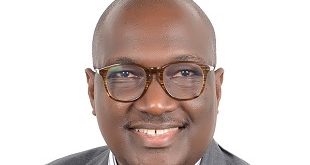
By Julius Odeke
Outgoing French Ambassador Aline Kuster-Ménager spoke to The Independent’s Ronald Musoke.
What has been your impression of Uganda?
Before coming to Uganda, I read the book, My African Journey, written by Winston Churchill in 1906 describing Uganda as the “Pearl of Africa.” During my stay, I confirmed that Uganda is a beautiful country with a mild climate, stunning landscapes and a fascinating history.
But more than that, I realised the huge progress made by Uganda towards peace and development. I enjoyed my trips throughout the country. People are very friendly and open. As a nature lover, I was also more than happy to observe and discover the fauna, starting with the birds in my garden.
France has maintained a presence in Uganda since 1962.How would you rate the current relations between the two countries?
The relations are excellent and have grown in substance these last years. I would especially like to mention the French army cooperation to back UPDF in AMISOM and the increase in the support of the French Development Agency (AFD) to the infrastructure sector.
What are some of the projects/social programmes you have overseen during your stay in Uganda?

Since 2010, the Embassy of France has been committed to supporting civil society organisations in promoting the protection of the environment, gender equality and empowerment. Sixteen local initiatives have been supported under the small grants programme of the Embassy – the Social Development Fund.
I am particularly proud of the work that we have done with UNFPA and grassroots organisations to fight against Female Genital Mutilation. In the field of environment, I also think that our support to Living Earth Uganda in promoting the use of briquettes made out of biodegradable waste to replace charcoal is a great initiative.
What is driving the new wave of investment in Uganda by French companies like Lafarge, Orange Telecom, and Total E&P?
During my time here, the number of French companies operating in Uganda has increased from below ten to around thirty. There are Total in the energy sector, Orange in ICT, Lafarge with its large unit in Kasese or Bolloré Africa Logistics in the transportation business. But many more companies are active in a wide range of sectors: Veolia, Alcatel-Lucent and Camusat, EaseAgriculture or GreenBioEnergy.
Besides the important growth perspectives and a 35 million consumer market, these companies are attracted by the political stability and sound macroeconomic management of the country. It is therefore most important for Uganda to preserve such competitive advantages, in order to realise its full potential in attracting serious investors.
What are some of the challenges the French companies face in Uganda?
Cases have occurred where the situation have gotten complicated for them due to unforeseen changes in the business environment, especially regarding taxation or immigration issues. French companies should be regarded as important partners, and not as competitors: the development of local content is in everybody’s best interest but takes time to build up. French companies are here to stay, developing their business alongside Ugandans. It is crucial to treat them fairly.
The Great Lakes region is one of the continent’s most volatile regions and Uganda has been at the centre of pacifying the region. How would you rate Uganda’s role?
In Somalia, Uganda’s role has been key on the military side with great success on the ground but also on the political front to push for the establishment of new legitimate authorities. In South Sudan, a close neighbour and a key commercial partner, Uganda has a role to support the young institutions and also to encourage a peaceful and realistic dialogue with Khartoum.
In DRC, President Museveni played a useful role to mobilise the region, stabilise the situation between M23 and the government as well as facilitate a dialogue between them. Uganda is fully committed to the framework agreement put in place by the UN and must continue to play a role in this regard.
The visit by the UN Secretary General Ban Ki-Moon is yet another strong recognition of Uganda’scommendable efforts towards peace and stability in the great lakes region, in Somalia and other parts of the continent and beyond.
What have been some of the achievements arising out of the French Military Mission with the Uganda People’s Defence Forces (UPDF?)
As part of our operational co-operation, the French military mission has contributed to two major training programmes which are now considered as very successful; firstly, the training by the French Forces in Djibouti (FFDJ) – alongside their American and British counterparts – of the UPDF contingent (UGABAG) deployed in Somalia under the AMISOM arrangement; secondly, the training of Somali soldiers by the European Union Training Mission (EUTM) and the UPDF.
As part of our military co-operation, every year we send UPDF officers for training in France or in a military school in Africa called “Regionally-Oriented National Schools” (ENVR) – managed with the support of the French military co-operation. More than 32 Ugandan soldiers have benefited from this programme since 2010.
I also wish to emphasise the involvement of our Military Mission in the teaching of French language to UPDF officers at the Junior Staff College in Jinja. The Ugandan army relies a lot on its French-speaking officers in the fight against the Lord’s Resistance Army (LRA) which is present in two Francophone countries: Central African Republic and the Democratic Republic of Congo.
Why does France want to increase the number of French speakers in Anglophone countries?
France’s cultural and educational networks play a role in keeping dynamic what we call “Francophonie”, that is, the capacity to speak French and share French culture and values. In Uganda, this is enacted through the training of teachers of French by local and French experts, financial and technical support to the Association of Teachers of French in Uganda (APFO), scholarships programmes for undergraduate and post graduate students in Uganda and in France, as well as sponsored language classes for professionals (military and police forces, civil servants, etc.).
Today, the teaching of French is being supported by about 400 teachers in over 300 schools spread all over the country. The number of students sitting for French at both ‘O’ and ‘A’ levels is constantly increasing. As of 2012, at least 2,748 students were studying French at ‘O’ level and 746 at ‘A’ level.
This growth can partly be explained by the many opportunities offered by the possibility of speaking French in a country like Uganda which borders francophone countries and hosts several international organisations and conferences.
As part of the celebrations to mark the International Francophonie Day, the Embassy with Alliance Française Kampala and other partners organise a number of cultural activities including, regional tours of schools offering French, film festivals, debates, fun run and walk, football tournament, culinary festival and students exhibition among others.
What will you remember most about Uganda?
The kindness of the people and great nature experiences, being awakened in the morning by the hippos along the Nile, or searching for shoebills in the wetlands, for instance. I also enjoyed a lot working with Ugandan women and will remember with emotion the ceremony in the Tepeth community in Karamoja where the so-called “surgeons” committed to abandon the practice of Female Genital Mutilation.
Where are you headed next?
I am leaving for Benin.It is a new experience and there will be challenges too. But I have no doubt that the lessons learnt in Uganda will help me to meet the goals of my new assignment.
 The Independent Uganda: You get the Truth we Pay the Price
The Independent Uganda: You get the Truth we Pay the Price



